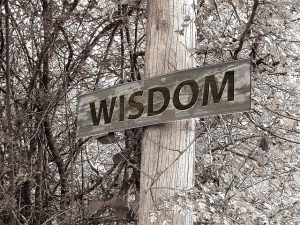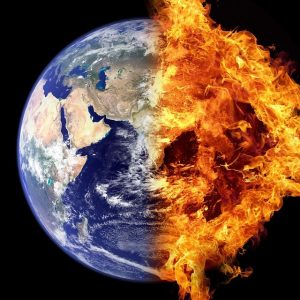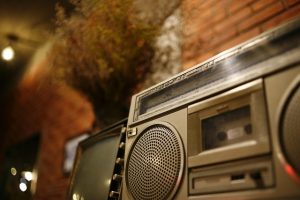憧れのフルブライト奨学金が消える? 警察回りと「UAジャーナリズム」への挑戦

 イメージ
イメージ
憧れのフルブライト奨学金が消える?
警察回りと夜討ち朝駆けの日々、そして「UAジャーナリズム」への挑戦
大学を卒業して、私は地方のローカルテレビ局に入社しました。
配属されたのは報道部。
何も分からない新人記者の私に与えられた最初の任務は、
いわゆる「サツ周り」——警察や司法機関を取材する仕事でした。
警察署に常駐し、事件・事故の情報をいち早く取材し報道するのが私の役目です。
正直なところ、それまで報道現場の実態など全く知らなかった私は、
現場での一つひとつの対応に戸惑うばかり。
例えば、早朝 突発的な交通事故の取材に行き、午後は警察関連のイベント取材に
周り、その間、県内の交通事故件数のまとめ等の記事を書きました。
その後、帰社して編集、OA、当日の反省会等が続きました。
また、帰宅後にも警察から 事件事故、さらに火災等の連絡が入ると
現場取材に飛び出す日々でした。
(もうクタクタ~)
また、先輩記者からは連日のように原稿の書き方、ウラ取り(確認作業)等の
厳しい指導が飛んできました。
今で言えば“パワハラ”と言われるかもしれませんが、あのときの厳しさが、
今の自分を支えていると思っています。
事件記者というと、殺人や誘拐、大規模火災といった凶悪事件を
材するイメージが強いかもしれません。
私も最初はそう思っていました。しかし、実際に担当し取材が難しいのは、
いわゆる「二課もの」と呼ばれる知能犯事件。
中でも多かったのが、公務員による贈収賄事件でした。
この種の事件は、警察も慎重で、確実な裏付けをとるために長期間にわたる地道な
捜査を続けます。
記者の取材も同様です。
「夜討ち朝駆け」と言われるように、早朝や深夜に関係者の自宅を訪れ、
何とか情報を得ようと奔走しました。
結果が報われないことも多く、徒労感に襲われる日々もありました。
それでも、現場でしか味わえない緊張感や達成感が、
私を記者として成長させてくれたと思っています。
そんな日々の中で、「ある出来事の記憶」が私の意識を大きく変えました。
 イメージ
イメージ
それはアメリカで起きた「ウォーターゲート事件」。1972年、当時のニクソン大統領が
関わった選挙違反事件で、米紙『ワシントン・ポスト』がスクープを連発し、
ついには大統領を辞任に追い込んだという衝撃的な事件です。
私は自分が報道の世界に関わり知れば知るほど、「アメリカのジャーナリズム」の力に
強く惹かれました。
報道の力で権力を監視し、社会を動かす。
そんなジャーナリズムの本質を、更にもっと深く知りたいと思うようになったのです。
それをきっかけに、英語の勉強を再開しました。
具体的には、英字新聞を読み、英会話の個人レッスンを受け、カーステレオで
ケネディ大統領の就任演説を聞く生活でした。
また、英語検定を受け2級に合格し1級を目指していました。
こうして、留学を夢見る中で出会ったのが「フルブライト奨学金」でした。
中でも私が心を奪われたのは「ジャーナリストプログラム」。
これは、現役の新聞記者やテレビ記者が、アメリカの大学で約9ヶ月間、
リサーチと文化体験を行うというものでした。
 イメージ
イメージ
私はこの奨学金に強く憧れ、何度も挑戦しました。
しかし、結果は毎回不合格。自分の力不足を痛感し、悔しい思いを繰り返しました。
それでも、その過程で得た経験や気づきは、今でも私の財産になっています。
ところが最近、このフルブライト奨学金制度がトランプ大統領の政策によって
廃止されるかもしれないという報道を目にしました。
個人的には非常に残念です。
私は実際にこの制度で留学することはできませんでしたが、
若い世代が世界を知り、学ぶ機会を得るためにも、
この奨学金はぜひとも存続、そして永続してほしいと思っています。
学びたいと願う人に、未来への扉が開かれる——
フルブライト奨学金は、そんな希望を与えてくれる貴重な制度です。

 image
image
Will the Prestigious Fulbright Scholarship Disappear?
Days of Police Reporting, Late-Night Pursuits,
and the Challenge of “U.S. Journalism”
After graduating from university, I joined a local TV station in the countryside.
I was assigned to the news department.
As a rookie reporter who knew nothing,
my very first task was what’s commonly known as the “police beat”
—covering the police and judicial institutions.
Stationed at the local police department, my job was to gather and
report on incidents and accidents as quickly as possible.
To be honest, I had no real understanding of how news reporting worked.
I was constantly confused by every aspect of on-site reporting.
For example, in the early morning, I’d cover a sudden traffic accident,
then in the afternoon, I’d cover a police-related event.
In between, I’d write articles summarizing the day’s traffic accidents across the prefecture.
Back at the station, I edited footage, prepared for the broadcast,
and then joined the daily postmortem meeting.
Even after returning home, if I received a call from the police about a crime,
accident, or fire, I would rush back out for on-site coverage.
(I was completely exhausted.)
On top of that, senior reporters constantly gave me tough feedback on
how to write stories and fact-check details.
What would now be called “power harassment” might have been routine back then—
but looking back, that strict training is what shaped who I am today.
When you think of crime reporters,
you may imagine them covering major incidents like murders,
kidnappings, or large-scale fires.
That’s what I thought, too, at first.
But in reality, the most difficult stories to cover were the so-called
“Division 2 cases”—white-collar crimes.
Among them, bribery cases involving public officials were particularly common.
These cases required careful and prolonged investigations by
the police to gather solid evidence.
The same applied to journalists.
We’d often engage in what’s known as “night and morning raids”
—visiting the homes of those involved in the early hours or late at night,
desperately trying to get information.
Many days ended in disappointment, with no meaningful outcome,
leaving me drained.
And yet, it was the unique tension and sense of accomplishment found only
in the field that helped me grow as a reporter.
 image
image
In the midst of such days, one memory significantly changed my outlook.
It was the Watergate Scandal in the United States.
In 1972, the Washington Post broke a series of scoops about
an election scandal involving then-President Nixon,
ultimately leading to his resignation.
The more I became involved in journalism,
the more deeply I was drawn to the power of American journalism.
Journalism that monitors authority and moves society through the power of reporting—
I wanted to understand this essence more deeply.
That desire reignited my passion for studying English.
I began reading English newspapers, taking private English conversation lessons,
and listening to President Kennedy’s inaugural address in my car stereo.
I also passed the Grade 2 English Proficiency Test and aimed for Grade 1.
As I pursued my dream of studying abroad, I encountered the Fulbright Scholarship.
What captivated me the most was the Journalist Program,
which allowed working journalists from newspapers and
TV stations to spend about nine months at
an American university conducting research and engaging in cultural exchange.
I longed for this scholarship and applied multiple times.
But each time, I failed to pass.
I was painfully reminded of my own limitations and felt bitter disappointment.
Still, the experience and insights
I gained through those attempts remain invaluable assets in my life.
However, I recently came across news suggesting that
this Fulbright Scholarship program may be eliminated due to President Trump’s policies.
On a personal level, I find this deeply regrettable.
 image
image
Although I never had the chance to study abroad through this program,
I strongly hope that it continues to exist—
so that younger generations can learn about the world and broaden their horizons.
To those who wish to learn, the Fulbright Scholarship opens the door to the future—
It is a precious system that offers hope and opportunity.

